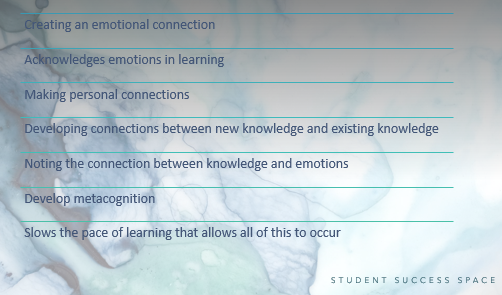Reflective Practice is not a passive event. It takes effort from an individual to process the information. Think of it as a mathematical equation:
Knowledge + Emotion + Past-Experiences or Knowledge = Reflection
Reflective practice is a conscious effort. A conscious direction. It has a purpose with a goal in mind.
To reflect is a comprehensive effort to organize knowledge and create emotional connections. It creates neuropathways while categorizing and using mental processing. It is not used in simple matters but in more complex situations such as ideas and problems. Therefore, it is not actually used in all situations.
Think on this as an example. Do you need to use reflective practice on the color blue? Probably not. But is reflective practice more valuable in looking at why the sky is blue? Probably as it would lead the learner to in-depth understand as they not only assimilate the new knowledge but note deficiencies in understanding.
Other attributes of learning from reflective practice include:
- Creating an emotional connection
- Acknowledges emotions in learning
- Making personal connections
- Developing connections between new knowledge and existing knowledge
- Noting the connection between knowledge and emotions
- Develop metacognition
- Slows the pace of learning that allows all of this to occur
Simply stated reflective practice provides an evidence of learning. Everyone and anyone can use reflective practice. However, not everyone can represent this reflection in writing.



Comments are closed